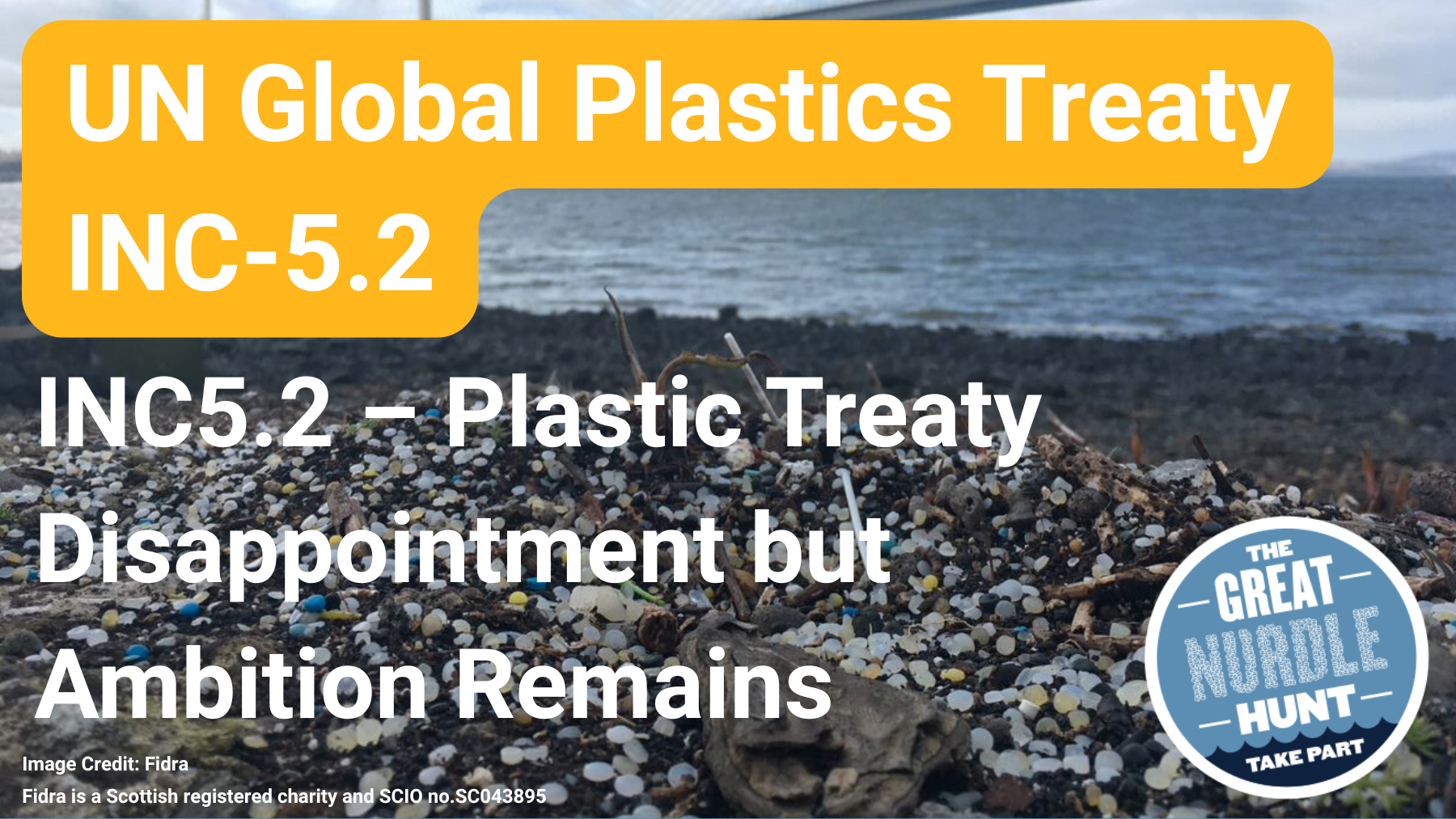The latest round of negotiations for a UN Global Plastics Treaty (INC5.2) concluded without consensus between nations on a final treaty.
Despite negotiations between governments extending into an extra day, nations were unable to come to agreement on the final text, resulting in no global plastic treaty being adopted at INC5.2. The latest and what was intended to be final, round of negotiations for a global plastics treaty (known as INC5.2) took place in Geneva, Switzerland between the 5th-15th August 2025. These negotiations were the continuation of the previous round (INC5) which took place in December 2024, with the aim of agreeing a final plastics treaty text.
Negotiations faced procedural issues, an extensive plastic industry presence and divisions between high ambition countries calling for measures such as production reduction and the ‘like-minded group’ calling for a focus on plastic waste. Draft versions of the treaty text prepared during negotiations at INC5.2 were rejected by many countries due to its failure to adequately tackle production, harmful chemicals and prevent pollution from such as plastic pellets and fishing gear. However ambition from the majority of countries to address the whole lifecycle of plastic from production to waste remains.
Appetite for Ambition
We are disappointed that nations were unable to come to agreement to secure an ambitious final treaty. Over the course of the negotiation process scientists, NGOs, civil society and many nations have called for a strong and ambitious treaty text to address the global plastics crisis. Including covering the full plastic lifecycle, from plastic production to waste management, to addressing existing pollution in the environment. Though a final treaty has not been achieved at the end of INC5.2, it is positive to see the majority of nations present calling for higher ambition and solutions to address the global plastics crisis. Over 70 countries came together for stronger action and joined the high ambition coalition including the UK, Ghana, Mexico and Fiji . As next steps for the treaty process are decided this ambition can be built with national and regional action with countries leading by example.
Draft texts and plastic pellets
Going into INC5.2, plastic pellets were specifically addressed within the Draft Chair’s Text produced at the end of the previous round of negotiations (INC5). This text formed the basis for negotiations at INC5.2 as delegates spilt into contact groups to discuss the articles of the treaty text, including Article 7 which contained text addressing plastic pellets. Over the course of contact group and informal discussions this text saw many proposed changes and sections unagreed, resulting in a heavily bracketed text (brackets denoting unagreed text).
On the 13th August following a week of negotiations, the chair published a new draft chair’s text. This new text was opposed by many nations, and saw multiple important aspects removed from the text including: plastic pellets, production reduction and chemicals of concern, representing a weakened draft text. Following further discussions, a new revised version of the chair’s text was published in the early hours of the 15th August ahead of the closing plenary, though important elements remain absent from this second text also, including specific language addressing plastic pellets. As INC5.2 was brought to a close early in the morning on the 15th August, no text and no treaty was adopted by nations present.
What next for the plastics treaty?
Multiple nations have voiced their desire to continue to work toward an effective plastics treaty, showing that though this round of negotiations were unable to agree a final treaty, ambition to develop a treaty persists. It is not currently clear what the next steps for the treaty process will be, with the Committee agreeing to resume negotiations at an unspecified later date. As we await further information on the next steps for the treaty negotiations, it is crucial to maintain the calls for an ambitious international treaty alongside taking national action to address plastic pollution across the full lifecycle.
